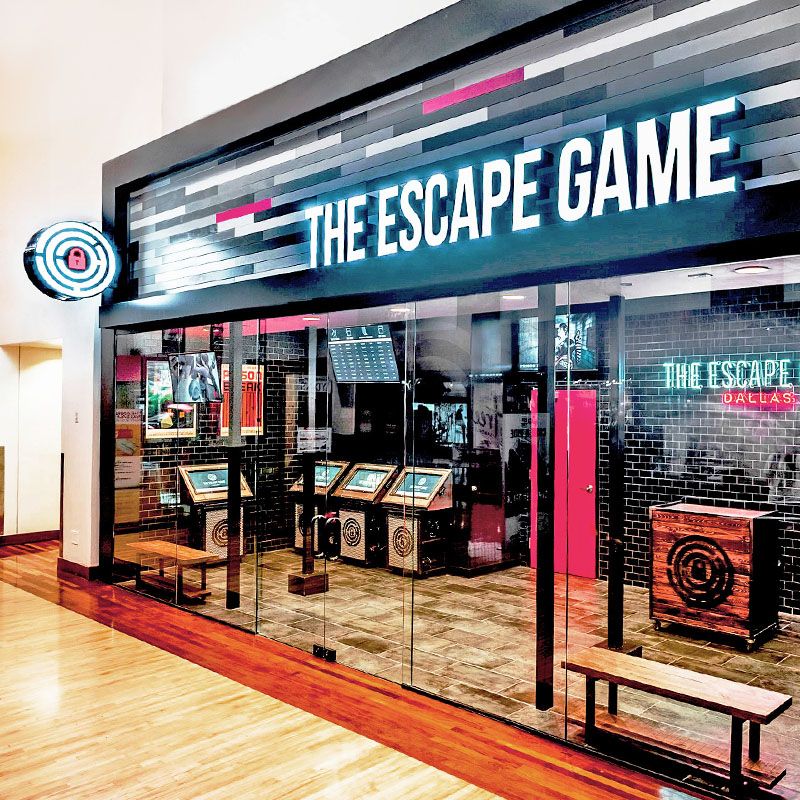Discover the Best Escape Room in Minneapolis-- Interactive and Engaging Enjoyable
Discover the Best Escape Room in Minneapolis-- Interactive and Engaging Enjoyable
Blog Article
Group Approaches: Just How to Collaborate Successfully in an Escape Space
Browsing the complexities of an escape room demands even more than plain enthusiasm; it needs a well-coordinated approach grounded in clear communication, calculated duty tasks, and experienced time monitoring. Teams need to actively listen per participant's understandings, designate roles that straighten with specific strengths, and maintain regular check-ins to make sure emphasis and avoid redundancy. By promoting a setting that values cohesion and versatility, teams can significantly enhance their performance and success rates. The nuances of these methods can transform the experience, but just how precisely can they be applied to make best use of the potential for success?
Establish Clear Communication

To assist in clear interaction, it is vital to designate a main factor of contact for details dissemination. Brief, focused updates from each group participant can keep the group educated without overwhelming them with info.

Appoint Duties Purposefully
While clear interaction sets the structure for effective synergy, designating duties purposefully guarantees that each employee's toughness are made use of properly. In a getaway space circumstance, the time-sensitive and intricate nature of difficulties necessitates an efficient technique to task delegation. By determining and leveraging specific competencies, teams can optimize their analytical capabilities and boost overall performance.
First, evaluate the special abilities and qualities of each individual. For example, a person with a keen eye for detail might master locating concealed items, while a logical thinker might be much better matched to solving challenges - best escape room. It's similarly vital to have a leader who can manage progress, handle the timeline, and make decisive phone calls when necessary. This function commonly needs solid organizational and social skills.
Second, guarantee that roles are adaptable and adaptable. As brand-new difficulties arise, the group must be able to pivot, reapportioning tasks as required. This flexibility aids keep energy and prevents bottlenecks that could occur as a result of stiff function tasks.
Ultimately, a critical strategy to function project not just makes the most of the staminas of each team participant yet additionally promotes a cohesive setting, driving the team towards a successful escape.
Make Use Of Diverse Skills
Identifying and taking advantage of the diverse abilities within your group can significantly raise your efficiency in a retreat room. Each team member brings one-of-a-kind strengths to the table, and successfully leveraging these capacities can speed up problem-solving and improve overall effectiveness. For instance, a group member with strong analytical skills may succeed at analyzing complex codes or patterns, while an additional with keen empirical capacities might quickly detect surprise clues that others could overlook.
Efficient interaction is key to using these diverse skills. Urge staff member to voice their insights and ideas immediately, guaranteeing that all prospective remedies are thought about. This inclusive method cultivates a dynamic environment where creative thinking and important thinking can grow. Furthermore, appointing jobs that line up with each participant's strengths can avoid bottlenecks and ensure that progression is continual.
Additionally, variety in abilities commonly converts to variety in thinking styles, Get More Information which is indispensable in a retreat room setting. While some difficulties may need sensible thinking and precision, others might benefit from imaginative and association of ideas. By identifying and leveraging this variety, groups can deal with a broader variety of challenges much more properly, thereby enhancing their opportunities of a successful escape.
Manage Time Effectively

First, designate initial minutes for a quick study of the space. Recognize noticeable problems and separate tasks based on employee' strengths, guaranteeing that nobody is idle. Establish interior time checkpoints to evaluate progress periodically; as an example, aim to have half the puzzles solved by the mid-point of the game. This practice can help keep the group focused and stop time from escaping unnoticed.
Additionally, stay clear of passage vision. If a problem is taking also long, rotate team participants or proceed to one more challenge, returning later with fresh viewpoints. Communication is vital-- maintain every person updated on addressed challenges and staying tasks to prevent redundant efforts.
Lastly, make use of any kind of hints or clues sparingly but purposefully - best escape room. Recognizing when to request for help can conserve beneficial time. By sticking to these time monitoring concepts, teams can substantially improve their possibilities of an effective and satisfying escape space experience
Debrief and Show
Representation is a vital facet of group advancement and enhancement in the context of getaway spaces. As soon as the difficulty is finished, whether efficiently or not, it is important for the team to take part in an organized debriefing session. This process allows employee to examine their efficiency, recognize staminas, and pinpoint locations for improvement.
Begin the debrief by discussing what went well. Highlight certain circumstances of reliable interaction, analytic, advice and cooperation. Acknowledging these favorable habits reinforces them and urges their repeating in future challenges.
Talk about moments of confusion, miscommunication, or inefficient strategies. Urge an open and positive dialogue where team members can share their perspectives without anxiety of objection.
Final Thought
In verdict, effective cooperation in an escape area is based upon clear communication, tactical duty projects, the reliable utilization additional resources of diverse skills, and skilled time monitoring. By developing a natural and flexible team atmosphere, the likelihood of effectively addressing problems and accomplishing the purpose of leaving the room is dramatically boosted.
Report this page